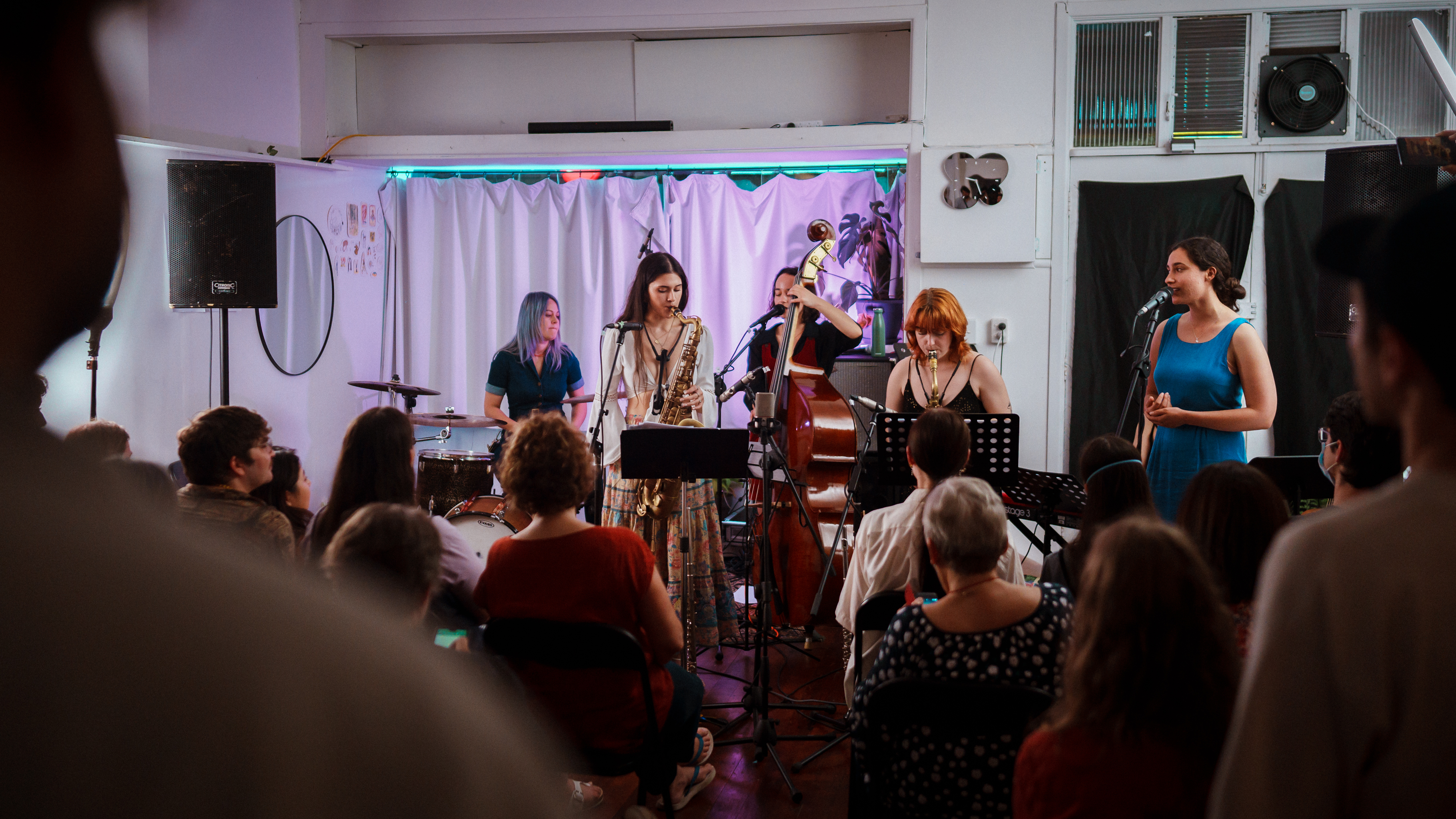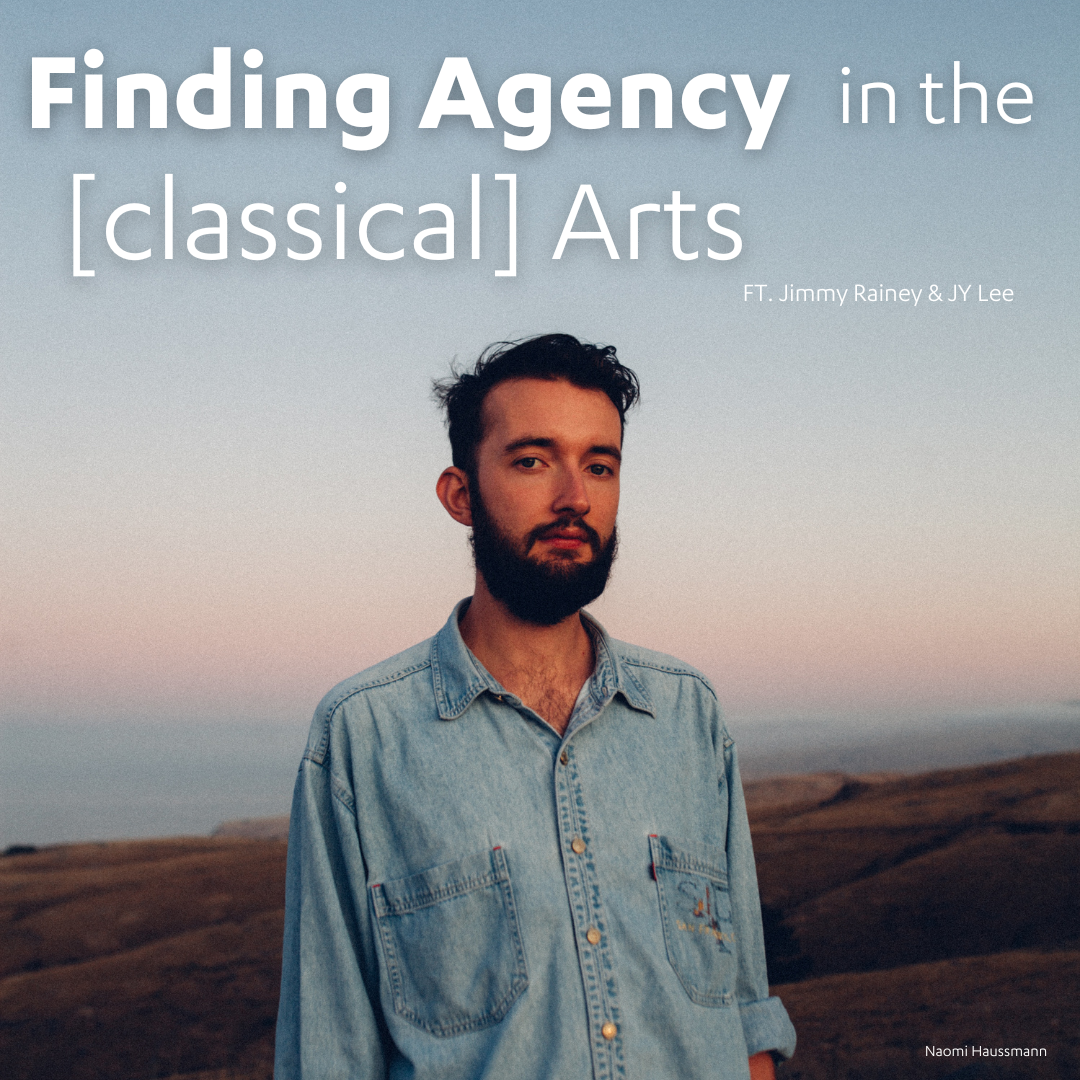Creating for the Community: Chatting to JY and Jimmy
In April 2021, I inherited the Pōneke Classical Sessions project which brought classical music to a bar off Cuba Street, Bedlam and Squalor. Along with my dear friends Ellen Murfitt, Jack Welch, Kate King and Lauren Jack,I learnt how to market shows, coordinate with artists, budget our limited funding, and adjust to the everchanging COVID restrictions.*
Pōneke Sessionsis currently on a hiatus but the work of placemakers in Aotearoa is still very much on my mind. I recently reached out to chat with two incredible artists based at either end of Aotearoa: JY Lee in Tāmaki Makaurau who runs 151 Improv and Jimmy Rainey in Ōtautahi who runs 03 Sessions.
*Pōneke Classical Sessions began as the brainchild of Hannah Darroch in the Third Eye bar. A huge thank you to the mahi of Chris Buckland who opened the doors of Bedlam and Squalor to me, Jake Baxendale for the Arthur Loft Orchestra series which inspired Pōneke Sessions and Elliot Vaughan and Jack Hobbs who gave me the push I needed.
Placemaking
Placemaking is a design concept that describes the work of communities to collectively reimagine and reinvent the spaces they use. In the creative industries, placemaking centres the arts as a tool to transform community spaces. Under this umbrella of thought, performing and visual arts can be used to change how people gather, build relationships with each other and enhance wellbeing.
Creative placemaking is an evolving, multifaceted area of research and design, and I’m only just scratching the surface. For more information check out What is Creative Placemaking?
So how does creative placemaking relate to live music series in Aotearoa? While I definitely didn’t describe myself as a placemaker (or even know of the concept) when I was running Pōneke Sessions, a live music series can be a placemaking project as it acts as a platform for artists and audiences to gather and connect.
An artist-run music series creates community amongst local artists, leading to new friendships, collaborations, projects. It ultimately strengthens the health of a local creative industry by supporting the creation of new work and new ensembles. It can generate income for artists with performance opportunities and by profiling their work to future collaborators and fans.
Music series also provide a new space for community members to interact with the arts in a low-key, cost effective way. When music events take place in a small, intimate setting, the audience has an opportunity to engage with the artists as fellow community members rather than distant figures on a faraway stage. There is a growing body of research that explains how regular engagement with the arts builds more interconnected communities and improves health outcomes. Locally-run artist-driven projects contribute to a neighbourhood’s cultural ecosystem so that regular interaction with the arts solidifies as a core value of a local community, enhancing wellbeing.
Two projects building community in Aotearoa through promoting and platforming live, original music are 03 Sessions and 151 Improv.
Origin Stories
Like Pōneke Sessions, 03 Sessions emerged from the COVID-19 pandemic as a platform for local musicians to perform and connect with the community. Now hosted at Space Academy in central Christchurch, the series produces around 30 gigs a year. Founder Jimmy Rainey described 2020 as a truly unique moment for the local creative industry. As the pandemic began to close borders and isolate Aotearoa, musicians returned home from overseas and the need for a space for artists to gather, perform and support each other was heightened under these unprecedented circumstances.
151 Improv preceded the pandemic. It began in 2016 as a DIY project at 151 Karangahape Road in central Auckland as a dedicated space for improvised music and performance.Its story weaves between DIY spaces in friends' flats, community centres and galleries. The project jumped between venues and constantly evolved as artists were priced out of the creative hubs of Tāmaki Makaurau.
For many of its early iterations, 151 Improv, was a gathering of friends managed through a Facebook community page rather than a public, ticketed event. JY Lee spoke about being mindful of space throughout the project's journey, particularly when it was hosted in friends' houses.
For the last two years, 151 Improv has been a weekly/fortnightly ticketed event housed in Nice Goblins Tattoo studio. It has recently been a recipient of a CNZ Arts Grant to develop its digital archive and a “151 Improv Songbook”, a collection of original music performed in the series.
Aesthetics and vibes
Despite their different localities and origin stories, the 03 Sessions and 151 Improv share an important core value when it comes to programming musicians — openness.
03 Sessions hosts“original and improvised music from Ōtautahi and beyond.”Jimmy says that he avoids “the j-word” (jazz) when describing the series and the music it curates to open the platform to a wider variety of musicians and sounds. For Jimmy, “original and improvised”tells jazz musicians everything they need to know to access the space, without excluding improvising musicians who don’t identify as jazz artists. Focusing on original music as the genre or aesthetic of the space avoids putting the project in a box with certain performance or stylistic expectations. 03 Sessions has hosted everything from Persian folk music, jazz trios and singer/songwriters to Brazilian samba. Their diverse, open line-up celebrates the diversity of cultural communities and expressions in Ōtautahi.
151 Improvtakes a similar approach to their programming, describing themselves as “open to all forms of improvised performance.”Speaking to founder JY Lee about his open-genre approach to the series, he said “as long as there is an improvisational element, you’ve got the gig.”
During our conversation, JY Lee spoke about the committed, valuable local projects already dedicated specifically to jazz practice (like CJC and WJC) in Aotearoa. He credits these ongoing projects to keeping the jazz and improvised music tradition alive and thriving in Aotearoa. In positioning themselves differently as “original and improvised” series, Jimmy and JY don’t reject or diminish the work of other series in their local creative ecosystem. Instead they add to our creative networks and communities by creating more space for projects, sound worlds and artists that don’t fit into a specific practice or aesthetic.

Our creative villages and the next generation
